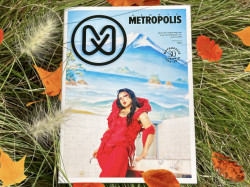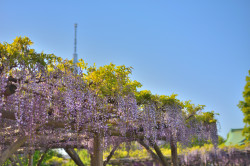
Originally published on metropolis.co.jp on August 2011

Sakuragicho station is often referred to as the genkan (front door) of new town Minato Mirai 21, but it is also the back door to Noge, a former post-war black-market zone that is withstanding the force of gentrification. In an effort to fight its waning economy, this traditional shitamachi (old town) has revitalized itself by promoting daido-gei (street performance) festivals and the eating of gei (whale). Its peculiarity doesn’t end there.

On the west side of the Ookagawa River, running through the sakariba (red-lantern izakaya district), is the willow tree-lined and stone-paved Yanagi Dori (“Willow Alley”). If you are particularly observant, you might notice a curious sign outside a modest multi-tenant building. It reads “Chinjuya” (“rare beast monger”). Metropolis, intrigued, chose to stop and explore what rare beasts it did, in fact, have on offer.
As a bunch of self-proclaimed epicures and wannabe gastronomes, some of us were as excited as little kids on safari at the mere thought of this wild, raw adventure. Upon entering—in contrast to what one might have imagined—we found a stylish back wall full of Japanese sake and a dimly lit bar counter. A mountain pit viper lurked inside a jar of Okinawan awamori liquor (habushu, ¥950 a glass) as if it had been anticipating our kampai for its 25 years of aging.
On the side, a blackboard sat with the day’s menu, handwritten by Yamagata-born chef and owner Masaatsu Tsunashima. Inspired by French cuisine, he opened Chinjuya in 2009 as a place to prepare unusual game animals from across the globe and serve the rarest parts at a reasonable price. Note that the viands are imported through his own national and international trade channels and not from the nearby Nogeyama Zoo.
We started off with the chunju hot pot (¥7,960, minimum two diners), a gastronomic hodgepodge of Canadian pheasant, Hokkaido ostrich and Australian kangaroo, plus some mushrooms and assorted veggies. As delicious as it was, Tsunashima likes to serve most of the meats at Chinjuya as raw and fresh as possible, owing to their A-grade status. The Hokkaido ostrich is one of them. Some say its delicate flavor and texture can be destroyed through cooking.
This was illustrated well when the same ostrich’s liver was served to us raw (¥1,280) with sesame oil and fresh garlicky shoyu. It was both smooth and sweet on the tongue. The succulent tissue developed a rich creaminess after a little munching. The Russian Eskimo-hunted sea-lion sashimi (¥1,280) sparked surprising delight from all upon first taste—its blubbery softness and lush texture when dipped in soy sauce and garlic puree left many at the table asking for more. Lean and beefy Egyptian camel tataki (¥1,280)—loin ribs seared lightly and eaten blood rare with a scallion garnish and citrus soy sauce—also made it to the table.
Gamier meat, like kangaroo from Australia (¥1,280) was served simmered in miso sauce—and truly scrumptious. The thick muscle of the deep-fried strips of Vietnamese python (¥1,280) trumped every other “chicken-like” meat on the table. Barbecued whole chicks (¥980 for two) were an oral chaos of frail boniness, cerebral gushiness, and firm tenderness (depending on which part of the body was being crushed by your molars). The highlight of the day, however, was the grilled crocodile claw (¥2,480)—Jurassic in every way.
Others worth mentioning were the extremely rare collagenous skin of the Vietnamese crocodile (¥680); assorted raw offal of Yamagata cow served in a zesty sauce that included jaw-challenging aorta, tender heart, chewy fourth stomach and elastic small intestines (¥1,280); roasted, fine-grained rabbit thighs (¥450); savory sautéed horse tongue (¥1,280); diced Kiwi lamb-belly steak (¥880); deer sashimi (¥980); and the rather dry, iron-rich pheasant heart (¥780).
By the time we had nearly devoured most of Chinjuya’s trove of rare animal delights that night, we were still shouting, “More!” Some of the true chinju fiends among us were upset by the news that, sadly, there were no more “lions or tigers or bears.” Oh my!







